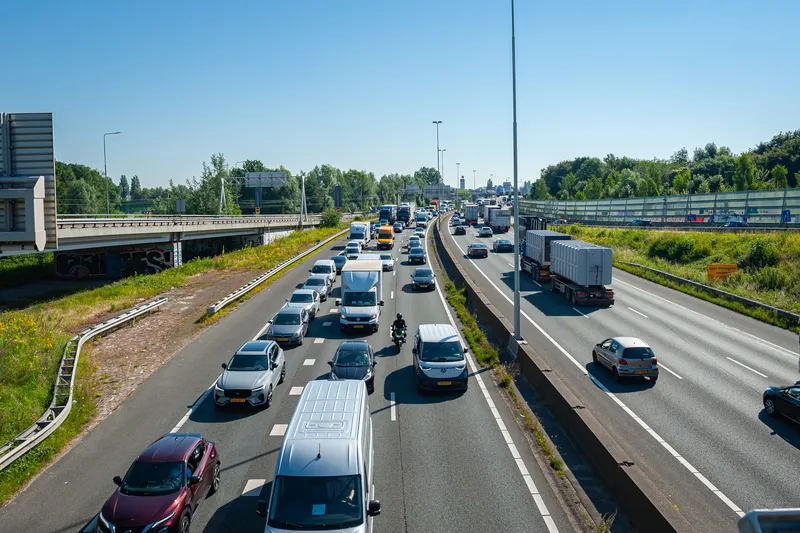
The first free-flow toll motorway has opened in the Netherlands.
The new A24/Blankenburg connection links the A15 at Rozenburg with the A20 at Vlaardingen near the port city of Rotterdam.
Two tunnels, Hollandtunnel and Maasdeltatunnel, are expected to see 60,000 vehicles per day.
Several major ITS firms are involved: Emovis has designed and installed the system, and will maintain it; Via Verde is managing and collecting tolls, with A-to-Be providing its MoveBeyond back-office system; while Conduent runs the customer contact centre.
Electronic toll rates, for Dutch and foreign vehicles, are €1.51 per time for cars, vans and motorcycles (up to and including 3,500 kg) and electric vans (up to and including 4,250 kg).
Trucks and other vehicles (above 3,500 kg) are charged €9.13 per trip.
From 2026, these fees - used to recoup part of the cost of the new build - will be adjusted each year.
Jan Strijk, director of toll collection at Netherlands Vehicle Authority (RDW), says the tolls are expected to be in place for around 25 years, depending on traffic volumes.
Licence plates can be registered for automatic payment, with payment to be made within 72 hours of the journey. A payment reminder will follow from RDW - followed by a non-payment fine of €35 per trip per licence plate.






